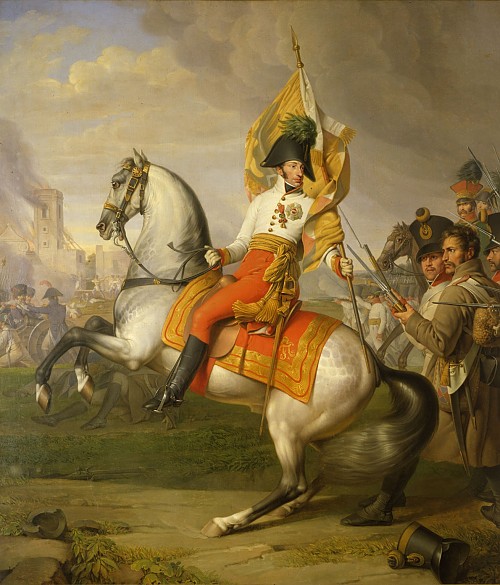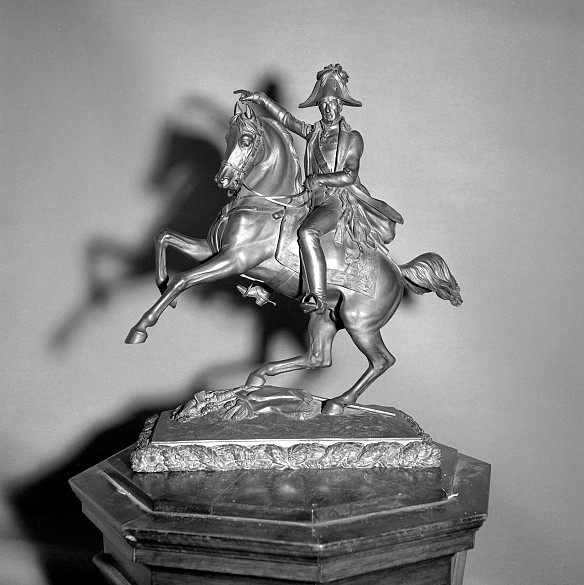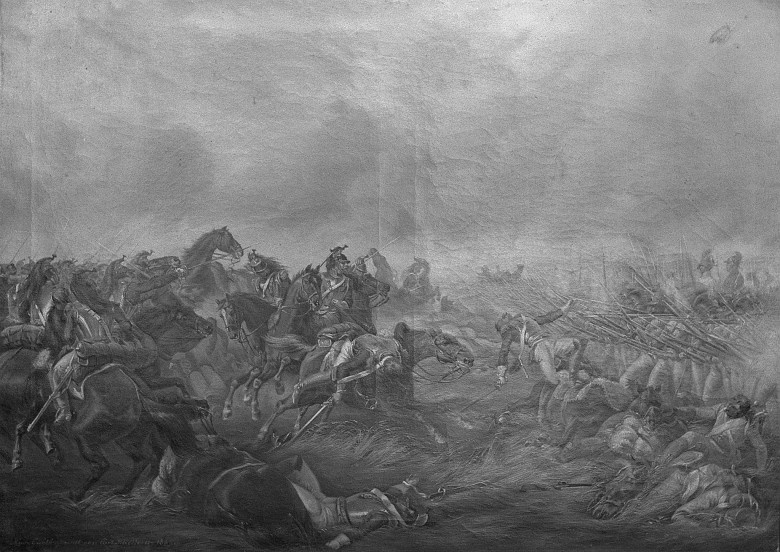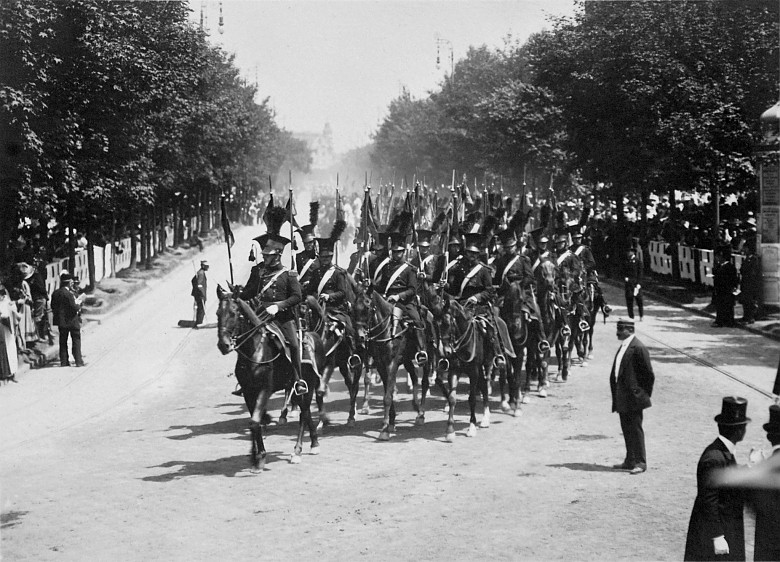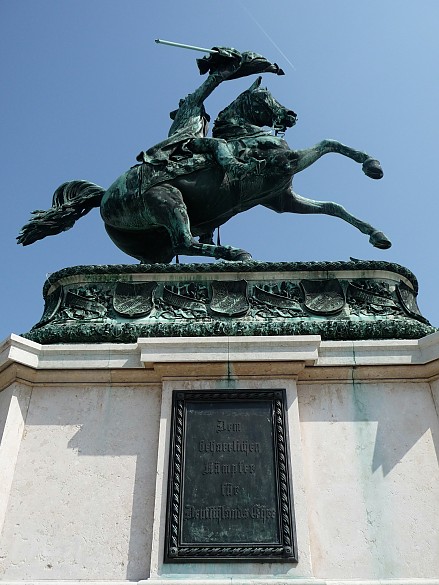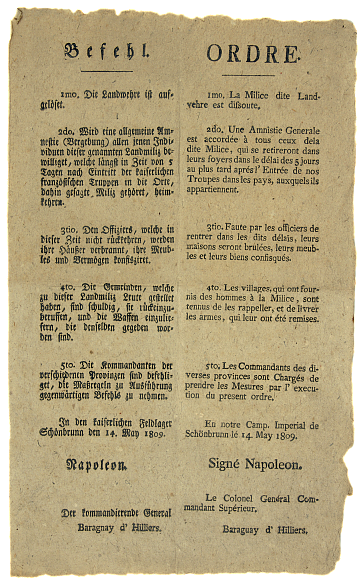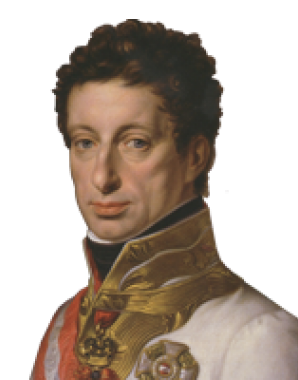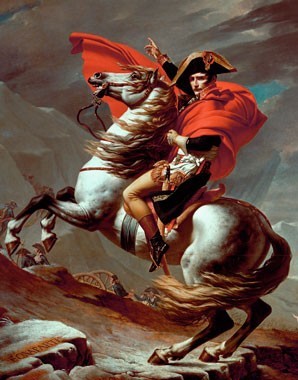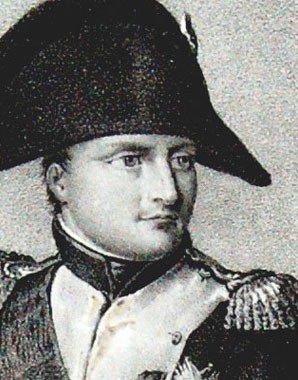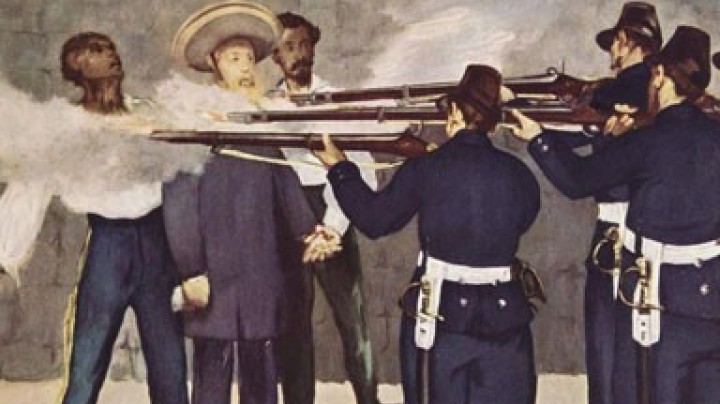The victor of Aspern
Archduke Karl was the first commander to defeat Napoleon on the battlefield. This is why he has come to be written up as the great general who paved the way for Napoleon’s downfall.
Lines by the poet Nikolaus Lenau on the occasion of a celebration of Archduke Karl on 17 April 1843Was Karl empfand auf jenem Ehrenfeld,
Weiß nur des Schicksals Liebling, nur ein Held,
Der auch wie er, den Degen in der Hand,
Und Gottes Geist im Haupt, fürs Vaterland
Mit solchem Helden rang, und es gerettet
Aus Schmerz und Schmach, worin es lag gekettet.
Mag immerhin nach Asperns blutger Schlacht
Der stolze Feind erheben seine Macht,
Aufwerfen siegreich seine Heldenfahne,
Sie blieb doch krank vom schüttelnden Orkane.
Die Donner Asperns habens ausgesprochen:
"Er ist besiegbar!" unvergeßlich allen,
Und Leipzig wird die Donner widerhallen;
Napoleons Waffenzauber war gebrochen.
O Karl! es war dein schönster Heldentag!
O Österreich! dein höchster Herzensschlag![Only the darling of fate knows what Karl felt on that field of honour, only a hero who like he with his sword in his hand and the spirit of God in his mind fought with a hero like himself for the fatherland and saved it from the chains of pain and dishonour in which it lay. For all that the proud foe rose in power after Aspern’s bloody battle and hoisted high the flag of victory, the tremendous storm had left it sick. Nobody forgot what Aspern’s thunderings spoke – ‘He is not invincible!’ – and Leipzig let the words ring out once more, for Napoleon’s magic touch was broken. Karl, it was your finest heroic day – Austria, your highest heartbeat.]
In 1796, Reichsgeneralfeldmarschall (imperial field marshal general) Archduke Karl was made supreme commander of the Austrian troops in southern Germany in the wars against France. Although he immediately won a victory at the battle of Würzburg, reverses of fortune followed, on account of which he temporarily laid down his command. Nevertheless, in 1799 he was charged with the reform of the army and promoted to Generalissimus in 1805.
When in 1809 Austria yet again declared war on Napoleon, the Habsburgs mustered the biggest army that they had ever put into the field – a total of 725,000 men. However, only a few weeks after the beginning of the war there was an assault on Vienna and the city capitulated on 13 May. Karl’s great hour came on 21 and 22 May, when under his command the Austrians won the first ever victory against Napoleon at the battle of Aspern and Essling, with each side suffering around 20,000 casualties. Although it was of no value in military terms, as it did not help to displace the French from Vienna, it was psychologically important, as it deprived Napoleon of his aura of invincibility. Only a few weeks later, on 5 and 6 July, however, Karl was defeated at the battle of Wagram, in which 120,000 Austrians were pitted against a superior French force of 180,00 and lost 5,000 men with 17,000 wounded and 18,000 taken prisoner. Having observed the battle from the nearby Bisamberg, Karl’s brother Emperor Franz is said to have remarked ‘Well, all we can do now is go home.’
Karl was thus responsible not only for the victory at Aspern but also for the defeat at Wagram. Having been given no further military command after the war of 1809, he concentrated on his activities as a writer on military affairs. In 1822 he inherited his adoptive father Duke Albert of Saxe-Teschen’s celebrated collection of prints and drawings and took up residence at the palace we now know as the Albertina.
The fact that major military successes under the personal command of a Habsburg were a rarity made Karl an excellent candidate for celebration as one of the dynasty’s great generals. His victory at Aspern was even presented as the first step towards Napoleon’s final defeat – even though this was far from being a real prospect at the time of the battle. In 1857 Karl received the enduring sobriquet ‘the conqueror of the unconquerable’ (Heinrich von Kleist) and was honoured with an equestrian monument on Heldenplatz – ‘Heroes’ Square’ – in Vienna.
